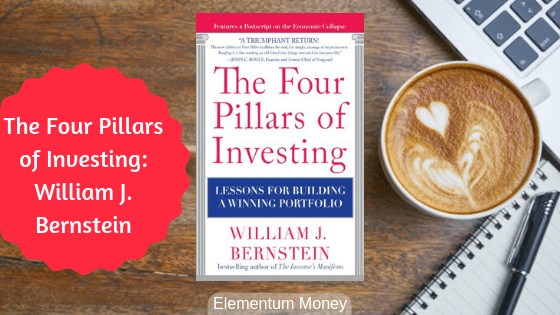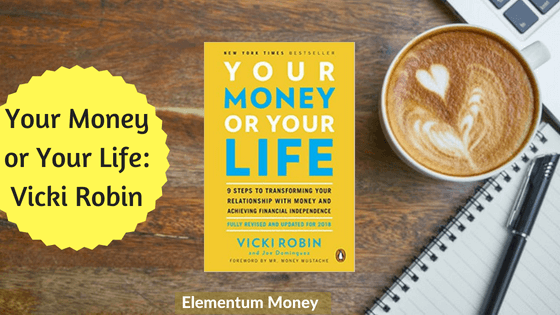
Are you surprised to not see a Follow Friday feature today? I thought starting in the new year, it was time for some change. The Follow Friday feature also involves a lot of back work for me, which gets difficult to churn out something every week. From this week on, every Friday will be alternated between a blog profile and a book review.
FIRST IMPRESSION
I still remember that day while I was still in MBA. I saw one of my room-mates engrossed in what looked like a cheap copy of a book called – Rich Dad Poor Dad. The cover was this bright lilac in colour with an image of the author – Robert Kiyosaki – grinning at you. Somehow the cover just put me off and it just didn’t seem like a book that I would want to read. The fact that I was working to get a specialisation in marketing probably didn’t really push me towards that book either.
Sometime back, when I started researching for personal finance books to read, I was surprised to see the book come up as a serious recommendation from multiple people. That made me try to read the book and I sure am glad I did.
BASIS OF THE BOOK
In the book, the main basis for the title and the book is the distinction that the author, Robert Kiyosaki makes between his Dad and Pseudo Dad. Kiyosaki was born and raised in a middle-class family in Hawaii. He grew up to see his highly educated father with very typical middle class values from close quarters. On the other hand, he had a friend Mike, whose father dropped out of school at the age of 13 but worked hard enough to become one of the richest men in Hawaii.
Kiyosaki lays out the entire book with respect to differences in the mindset, attitude and deeds between his two dads. When I read the book, it was simple and still pretty impactful. Published in 1997, the book holds some timeless lessons:
- Make your money work for you, rather than working for money
This is one of the first lessons in the book where young Kiyosaki remembers how people had to wait long times before they could meet Rich Dad. This was a moment that Rich Dad made teachable by showing how people who are working at a job and living paycheck to paycheck are working for money. Most people are risk averse and would rather have the secure jobs that they are in. However, once you make your money work for you, either through a self-sustaining business or through financial independence, you lead a much higher quality life.
- Buy assets, rather than be saddled with liabilities
As Kiyosaki put it, so many celebrities earn millions but rarely use it to buy liabilities. Earning high is important but even more important is what you choose to do with that money. I think one of the best proverbs in this regard is – A fool and his money are soon parted.
Assets and liabilities – the two things that define a balance sheet. However, a lot of times we erroneously believe liabilities are assets. What about the new shiny car you just bought with a hefty EMI? Asset or liabilitiy? More importantly – The house that you are living in for which you will be paying an EMI for decades. Is that an asset or a liability? To me, the definition is simple. An asset is something which should either grow in value or earn you money. In that respect a self-occupied house becomes an asset when you sell it. A car? Not an asset in the slightest.
- Consciously spend your time and money
If you read my post on my 30 notes to self, you would see that I mention how time is a precious resource and I wish to respect it. One of the persuading factors for that learning was this book. I have always been a conscious money spender. Now, gradually I am bringing this consciousness to my time spending as well. Ask yourself, how are you making your time count? Are you happy with it or does it all go by in a blur? As they say, if you aren’t aware of it, track it. I did it with my expenses. Be brave and try tracking your time in 15 minute intervals. You will realize just how much of it slips through our fingers effortlessly.
- Peer group is extremely important
I still remember how much my parents fretted over my friends while in school. For any test, they would ask what my specific friends (with whom I spent time) had gotten too. And no, it was not just to ask why I got less than them 😉 . This principle holds true so much more when we grow up. One quote in this respect that I try to remember is, “If you are the smartest person in the room, then you are in the wrong room”.
Essentially, try to spend time with people from whom you will learn something. If you do not find them in real life around you, books are an easy way to fill that vacuum. Read autobiographies of people you aspire to be like or just any good non-fiction book in the self-improvement space. Not all of them will be good, but enough of them will leave you with lessons to remember. Of course, you can take a short cut and follow the Elementum Money Book Club 🙂 .
- Master what you learn
You cannot expect to be average and make it big. You should choose what exactly you want to spend time in and what do you want to master. In the book, Kiyosaki recommends the reader to spend time learning how to invest money, especially in real estate. Personally, I have realized my interest in financial planning which made me spend time and money, that I did not know I even have, on the path to become a Certified Financial Planner. What is the one thing that will make you want to master it?
- Quality advice costs money
This was one of the first times I read it and believed it. I have always hated paying the brokerage on the apartments I have rented so far. I have often skimped wherever I can, trying to cut off any “middle man”. However, Kiyosaki makes a very convincing argument as to why you must hire professionals for important decisions and how they are worth the money they charge. He talks about how good brokers have helped him find and make great real estate deals. If there is a big decision to be made, especially financially, do not hesitate paying up for high quality professional advice.
- Give before you expect
This is a book which outlines a basic of networking very well. If you are a newbie, do not expect the established stalwarts to jump up wanting to do something for you. You have to give something to or do something for the other person before you can even expect to get anything in return.

If you want to achieve something, you will need to make an effort towards it
- If you want something you will need to make the effort for it
Wanting to have something is a step in the right direction, but it is most certainly not enough. Visualise about that something all you want, but unless you take that first step and the next step and keep working at it, you will be no where close to making it happen. Anything good has effort behind it. There is no overnight success.
Overnight success is like a duck – you might wonder at the calm façade of it on the surface of the water, but it is really buoyed by the frantic paddling happening underneath. Click To Tweet- Legal ways to reduce taxation give a bigger bang for your buck
Another big lesson that I learnt from this book – government tax companies much more favourably than they charge individuals. As I looked around, it was clear that it holds true in India as well. When you talk about net worth, it is really business owners who do much better than us salaried folks. Once I read it, the seed of entrepreneurship has just been growing by leaps and bounds.
As I was researching for the book for this post, I saw some recent news articles, which came to the conclusion almost 20 years after the book was published, that Rich Dad was not a real person. It was a figment of the author’s imagination. While a lot of people felt cheated especially, since Kiyosaki always called the book non-fiction and even talked about “Rich Dad’s son” Mike, to me it just made the idea of Rich Dad Poor Dad even more original.
What about you? Have you read the book? Did you know Rich Dad was a fictional character? Let me know what you think in the comments or email me at aparna@elementummoney.com





Leave a Reply